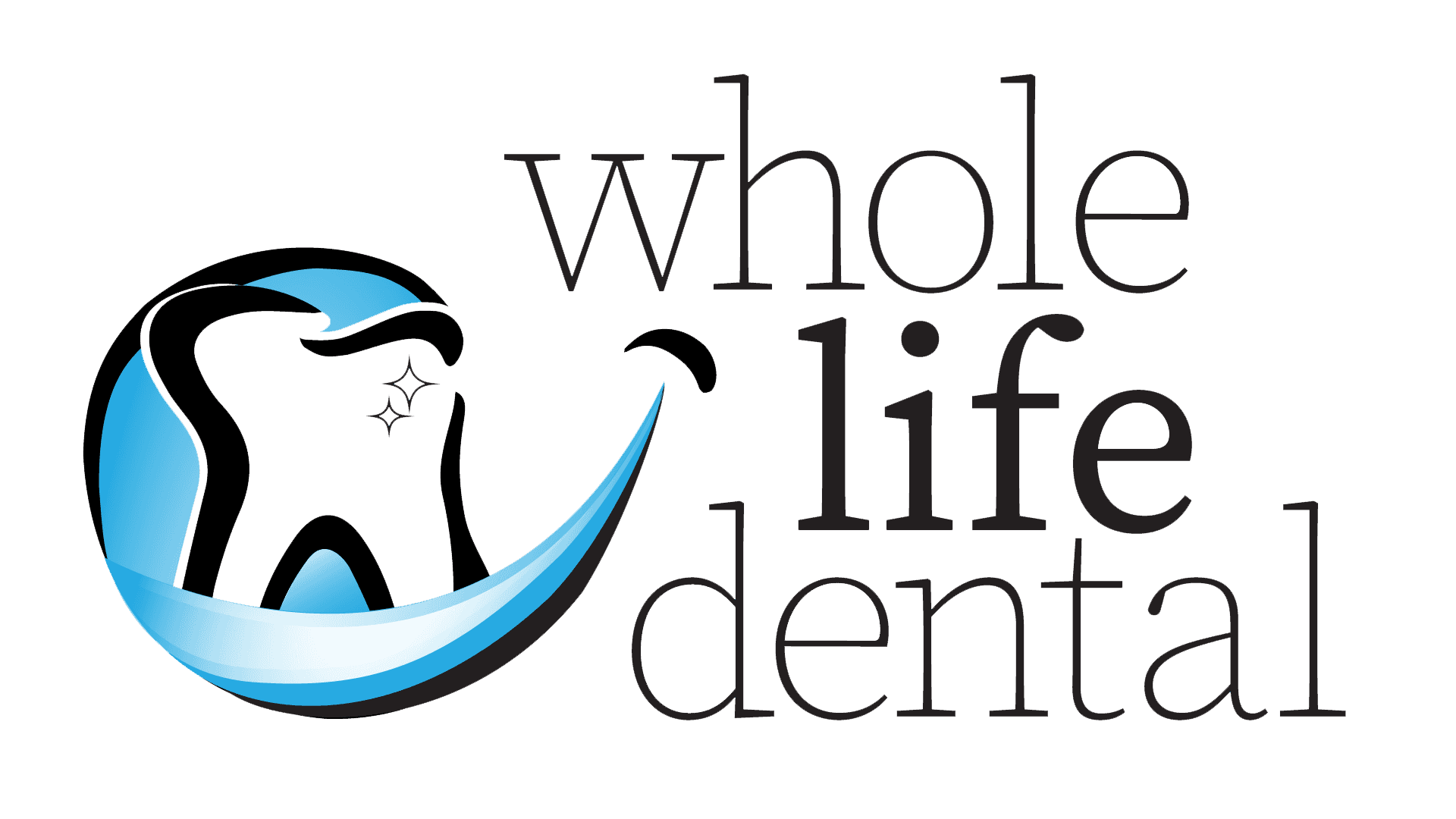Your gums play a crucial role in maintaining your overall oral health. They serve as protective shields for teeth roots and support their stability. When they start to bleed, however, it's essential to understand why this is happening so that you can take swift action.
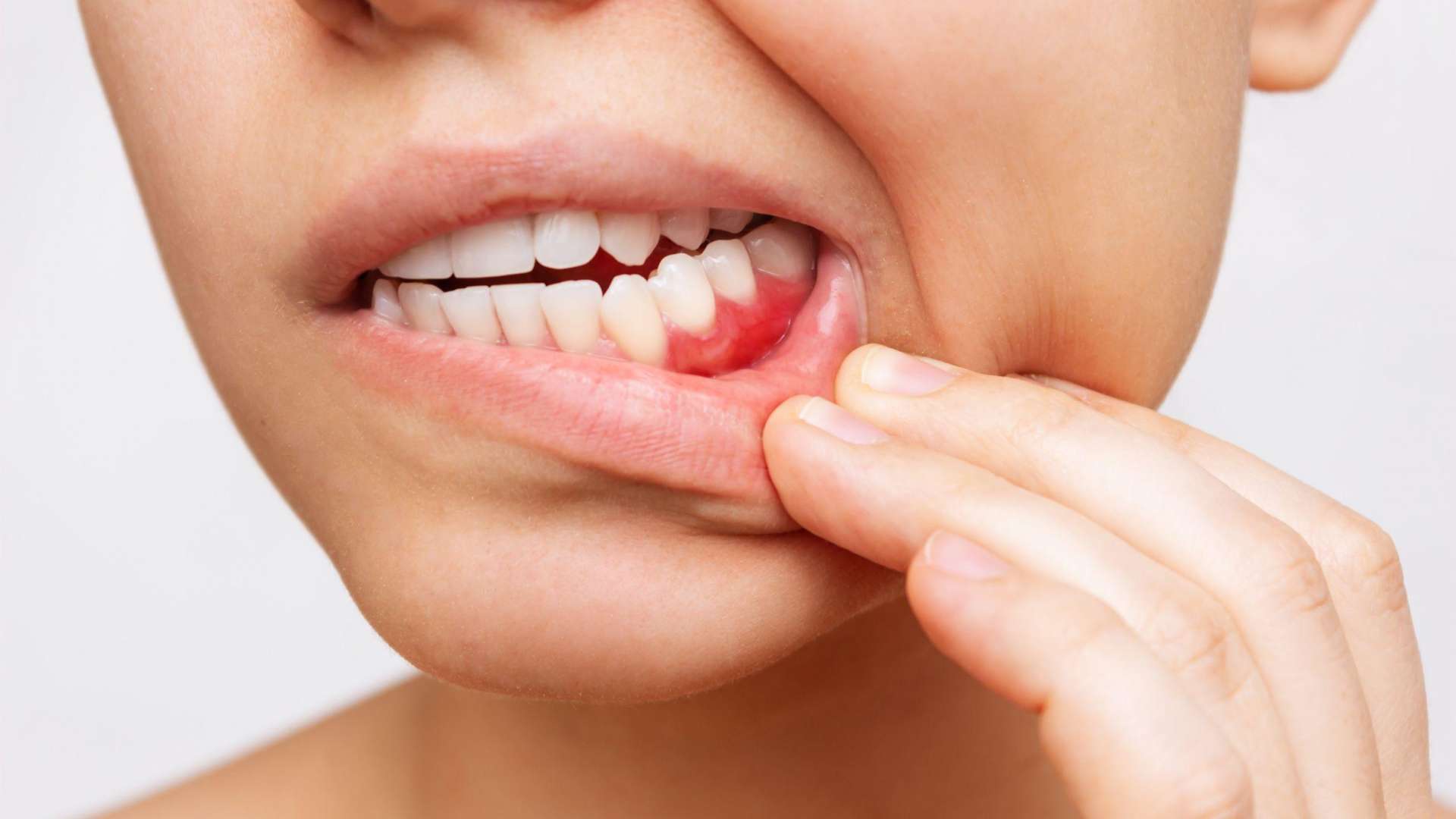
Common Causes of Bleeding Gums
When it comes to bleeding gums, there can be various factors at play.
- One of the most common causes is gum disease, also known as gingivitis. This occurs when plaque builds up along the gumline and irritates the gums, leading to inflammation and bleeding.
- Another cause of bleeding gums could be improper oral hygiene practices. If you're not brushing and flossing regularly or effectively, bacteria can accumulate in your mouth, causing gum irritation and bleeding.
- In some cases, hormonal changes during pregnancy can also lead to bleeding gums. The increased levels of hormones can make your gums more sensitive and prone to bleeding when brushing or flossing.
- Certain medications, such as blood thinners or antiplatelet drugs, may also increase the risk of gum bleeding. These medications affect the clotting process in your body, making it easier for your gums to bleed.
- Smoking is yet another factor that can contribute to bleeding gums. Smoking weakens your immune system's ability to fight off infection, making it harder for your gums to heal properly.
- Vitamin deficiencies like a lack of vitamin C or K can weaken blood vessels in the gums and result in easy bruising or bleeding.
How can I prevent mouth injuries?
Mouth injuries can be painful and inconvenient, but the good news is that many of them are preventable. By taking a few simple precautions, you can reduce your risk of experiencing oral trauma.
- First and foremost, it's important to wear protective gear when engaging in activities that could potentially lead to mouth injuries. This includes wearing a helmet while biking or participating in contact sports, as well as using a mouthguard during high-impact activities like basketball or boxing.
- In addition to wearing protective gear, practicing good oral hygiene is crucial for preventing mouth injuries. Brushing your teeth twice a day with a soft-bristled toothbrush and fluoride toothpaste helps keep your gums healthy and reduces the likelihood of gum disease or infections that could make your gums more susceptible to bleeding.
- Avoiding habits such as nail-biting, chewing on ice or hard candy, and using your teeth as tools can also help prevent mouth injuries. These behaviors put unnecessary strain on your teeth and increase the risk of chipping or cracking them.
- Regular dental check-ups are essential for maintaining oral health and identifying any potential issues early on. Your dentist will be able to detect signs of gum disease or other oral problems that may contribute to bleeding gums if left untreated.
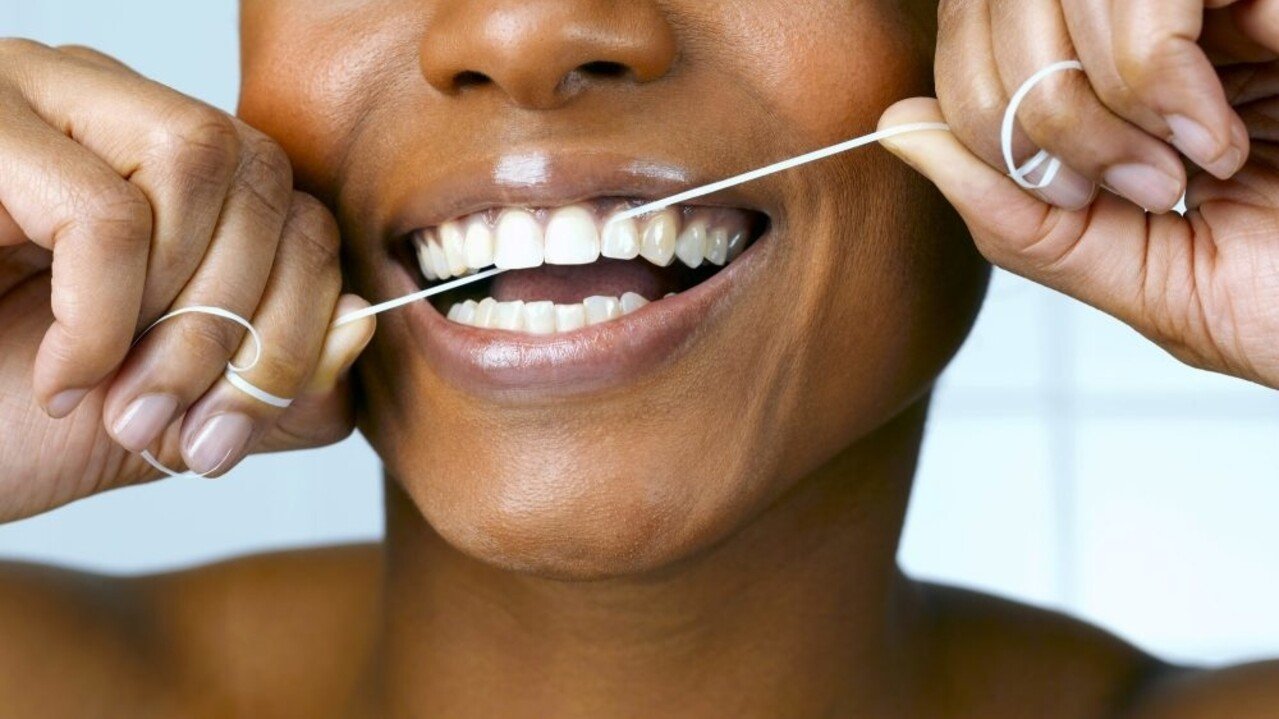
Lifestyle factors that can trigger gum bleeding
When it comes to maintaining healthy gums, our lifestyle choices play a crucial role. Here are some commonly overlooked factors that can trigger gum bleeding:
Poor oral hygiene: Neglecting proper brushing and flossing allows plaque buildup, which leads to gum inflammation and bleeding.
Smoking: Besides its detrimental effects on overall health, smoking also hampers blood flow to the gums, making them more susceptible to bleeding.
Unhealthy diet: A lack of essential nutrients like vitamin C and iron weakens the immune system and compromises gum health.
Stress: High stress levels weaken immunity and increase inflammation in the body, including the gums.
Hormonal changes: Women may experience hormonal fluctuations during puberty, pregnancy, or menopause that can make their gums more sensitive and prone to bleeding.
Medications: Certain medications like blood thinners or antiplatelet drugs can increase the risk of gum bleeding.
Tooth grinding (bruxism): Excessive teeth grinding puts pressure on the gums leading to irritation and ultimately bleeding.
keeping regular dental check-ups for professional cleanings,
By taking steps towards a healthier lifestyle, you can reduce your risk of experiencing gum bleeding and enjoy better overall oral health!
Treating bleeding gums at home
When it comes to treating bleeding gums at home, there are several things you can do to promote gum health and alleviate the issue.
First and foremost, maintaining good oral hygiene is essential. Make sure you brush your teeth twice a day using a soft-bristled toothbrush and fluoride toothpaste. Additionally, don't forget to floss daily to remove plaque and food particles from between your teeth.
Another useful tip is rinsing your mouth with an antibacterial mouthwash. This can help kill harmful bacteria and reduce inflammation in your gums. You may also find relief by gently massaging your gums with a warm saltwater solution.
Incorporating a balanced diet rich in vitamins C and K can also aid in gum healing. These vitamins play crucial roles in collagen production and blood clotting, respectively. So be sure to include plenty of fruits, vegetables, lean proteins, and whole grains in your meals.
Furthermore, avoiding tobacco products is vital, as smoking or chewing tobacco can exacerbate gum problems. It's worth noting that stress has been linked to gum disease as well; therefore, finding healthy ways to manage stress levels may contribute positively towards healthier gums.
Remember, though these home remedies are helpful for mild cases of bleeding gums, they may not be sufficient for more severe conditions or underlying dental issues requiring professional treatment from a dentist or periodontist.
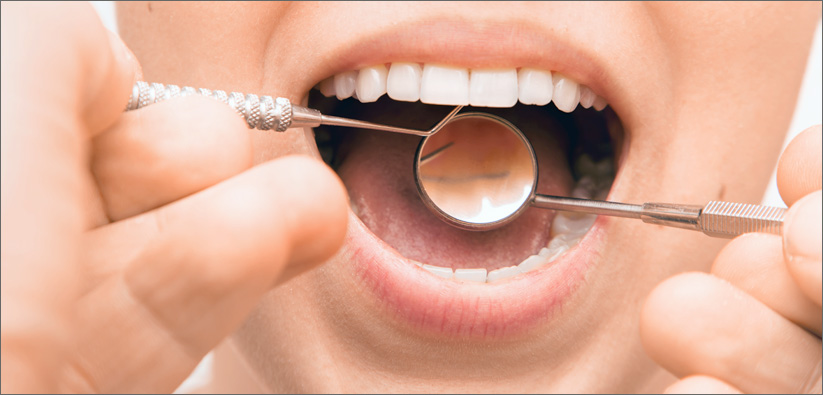
Treatment for bleeding gums
When it comes to treating bleeding gums, it's important to address the root cause of the issue.
- One common approach is maintaining good oral hygiene practices. This includes brushing your teeth at least twice a day with a soft-bristled toothbrush and using dental floss daily.
- In addition to regular oral care, visiting a dentist regularly is crucial in identifying any underlying dental problems that may be causing your gums to bleed. A professional cleaning by a dental hygienist can help remove plaque and tartar buildup that contributes to gum inflammation.
- For more severe cases of gum disease, such as periodontitis, additional treatment options may be necessary. These can include scaling and root planing procedures or even surgery in extreme cases.
Once you've received treatment for bleeding gums, it's important to take proper care of your oral health to prevent future issues.
Your dentist will provide specific guidelines based on your condition and the treatment received. It is crucial to follow these instructions carefully for optimal healing and prevention of further complications. Also, brush your teeth twice a day using a soft-bristled toothbrush and fluoride toothpaste. Make sure to gently clean along the gumline without applying excessive pressure that can irritate or damage the gums. You should also use dental floss or interdental brushes to remove plaque and food particles from between your teeth and along the gumline. This helps prevent bacteria buildup, which can contribute to gum inflammation. An antimicrobial mouth rinse may be recommended by your dentist to control bacterial growth in your mouth, reduce inflammation, and promote healing.
Remember that everyone's situation is unique; therefore, it's essential to consult with a dental professional who can tailor post-treatment care advice specifically for you.
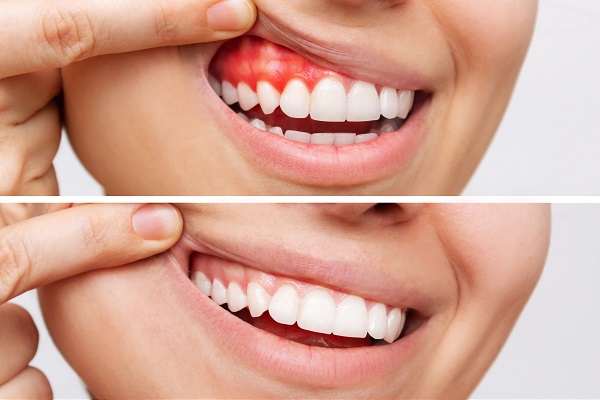
Frequently Asked Questions
Q: How common is gum disease?
Gum disease, also known as periodontal disease, is a prevalent oral health issue that affects a significant portion of the population worldwide. According to dental experts, nearly half of all adults over the age of 30 experience some form of gum disease. This condition occurs when bacteria in plaque build up along the gum line and cause inflammation, leading to various symptoms such as redness, swelling, tenderness, and even tooth loss if left untreated. While it can range from mild gingivitis to more severe periodontitis stages requiring professional intervention, early detection, and proper oral hygiene practices can help prevent its progression.
Q: Should I be concerned about bleeding gums?
If you notice your gums bleeding while brushing or flossing your teeth, it may indicate an underlying problem that warrants attention. Although occasional minor bleeding might not immediately point to a serious issue, persistent or excessive bleeding should raise concern. Bleeding gums are often an early sign of gum disease caused by inadequate oral hygiene, allowing plaque buildup and subsequent bacterial infection near the gumline. Additionally, other factors like hormonal changes during pregnancy or certain medications could contribute to this symptom. It's crucial not to ignore bleeding gums as they could potentially progress into more severe stages of periodontal disease if left unaddressed.
Q: Is it normal for gums to bleed while flossing?
Gum bleeding during flossing can be a common concern, causing many individuals to wonder whether it is normal or a cause for alarm. The answer lies in understanding the underlying reasons behind this occurrence. While some may believe that blood indicates harm, {keyword} gum bleeding during flossing can indeed be quite ordinary. This happens when plaque and bacteria accumulate along the gum line, leading to inflammation and tenderness, known as gingivitis. Consequently, when you start incorporating regular flossing into your oral hygiene routine, these inflamed gums become more sensitive and susceptible to slight trauma caused by the string of dental floss gliding between teeth. As a result, minor bleeding might occur initially but should be reduced over time with consistent oral care.
If you have concerns about your gum health or notice any signs of bleeding during brushing or flossing, don't hesitate to consult with your dentist. They will be able to provide guidance tailored specifically for you based on their expertise.
Visit Our Office
Office Hours
- MON - THU8:30 am - 5:00 pm
- FRIBy appointments only
- SAT - SUNClosed
